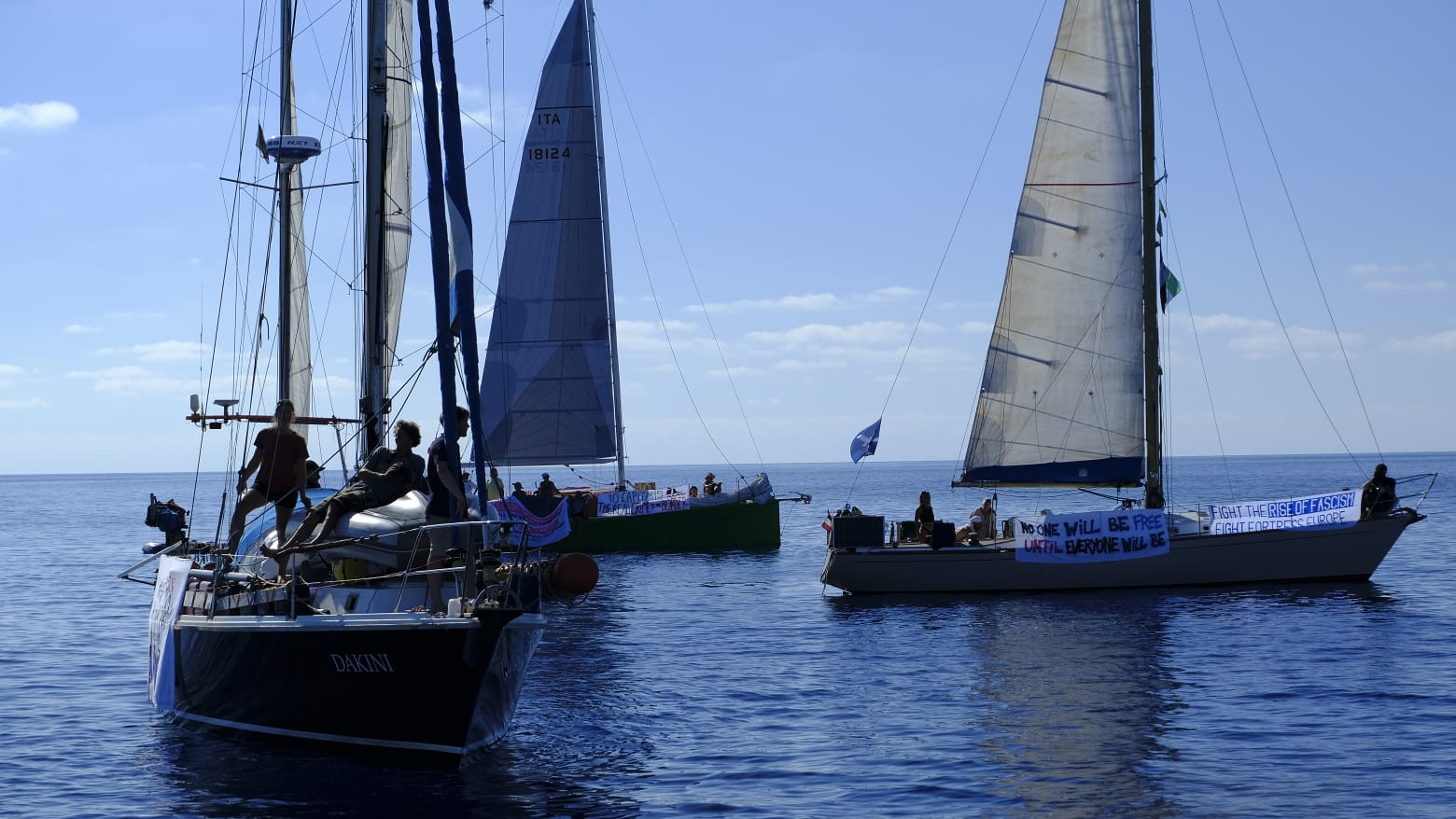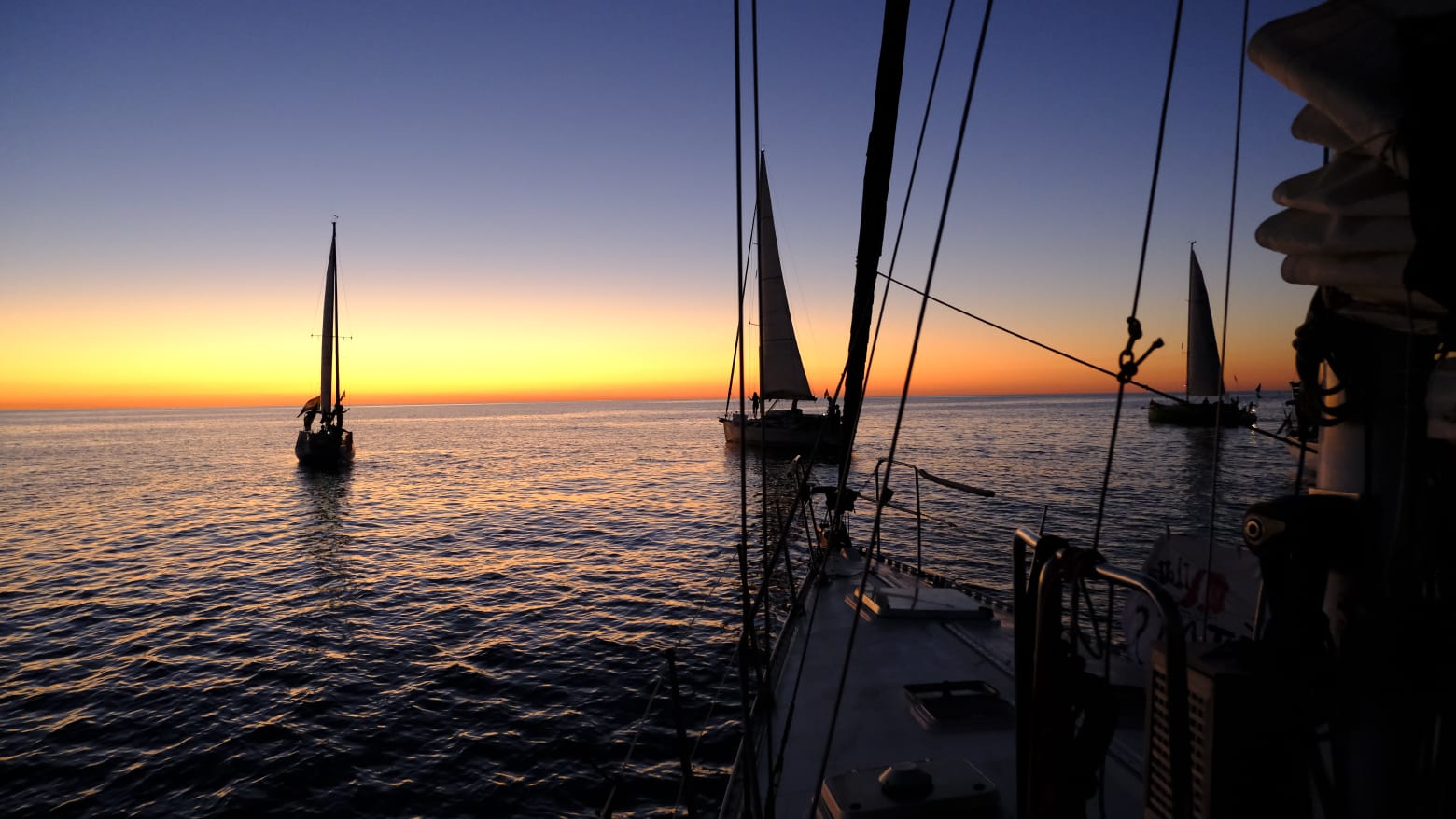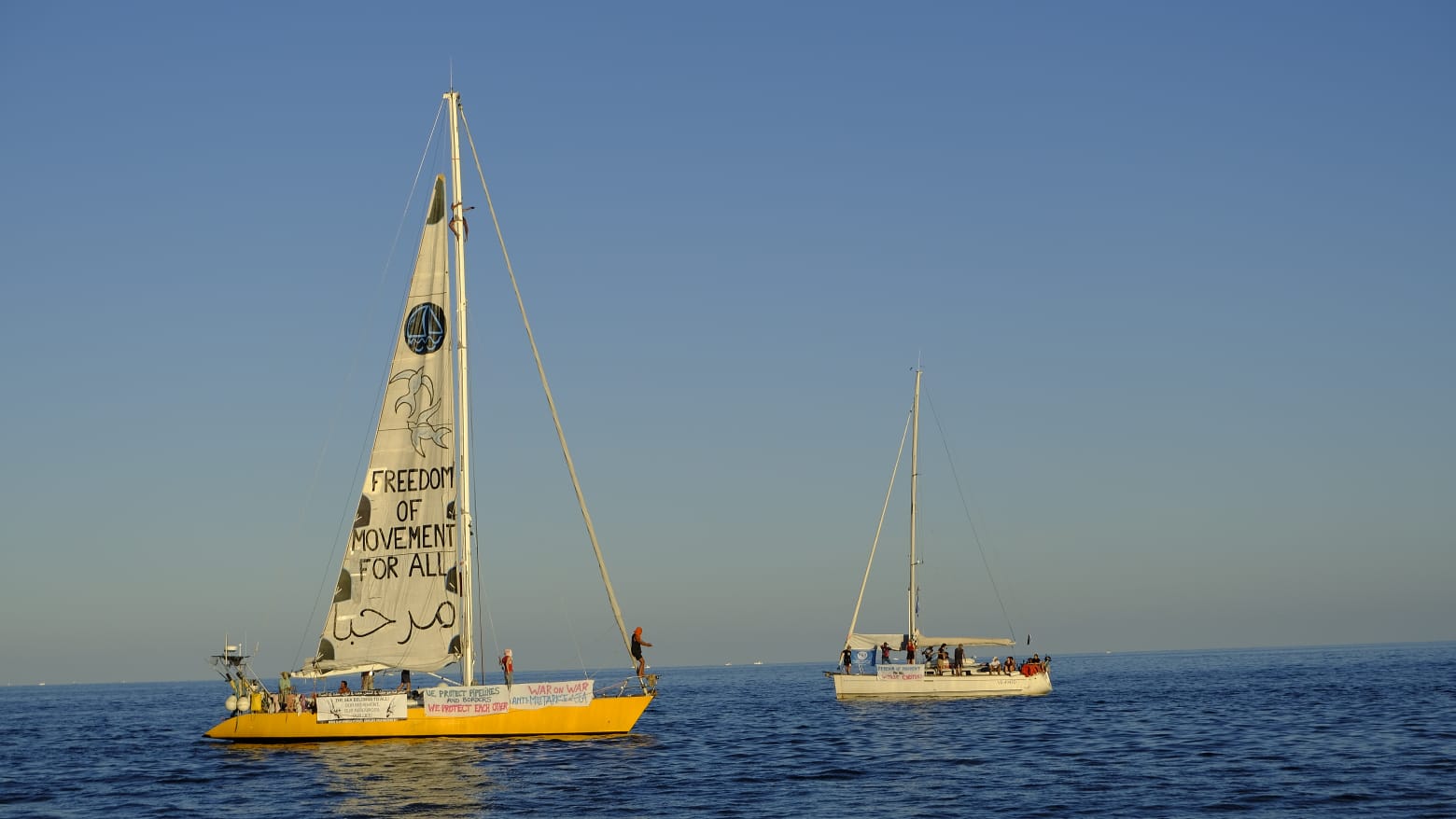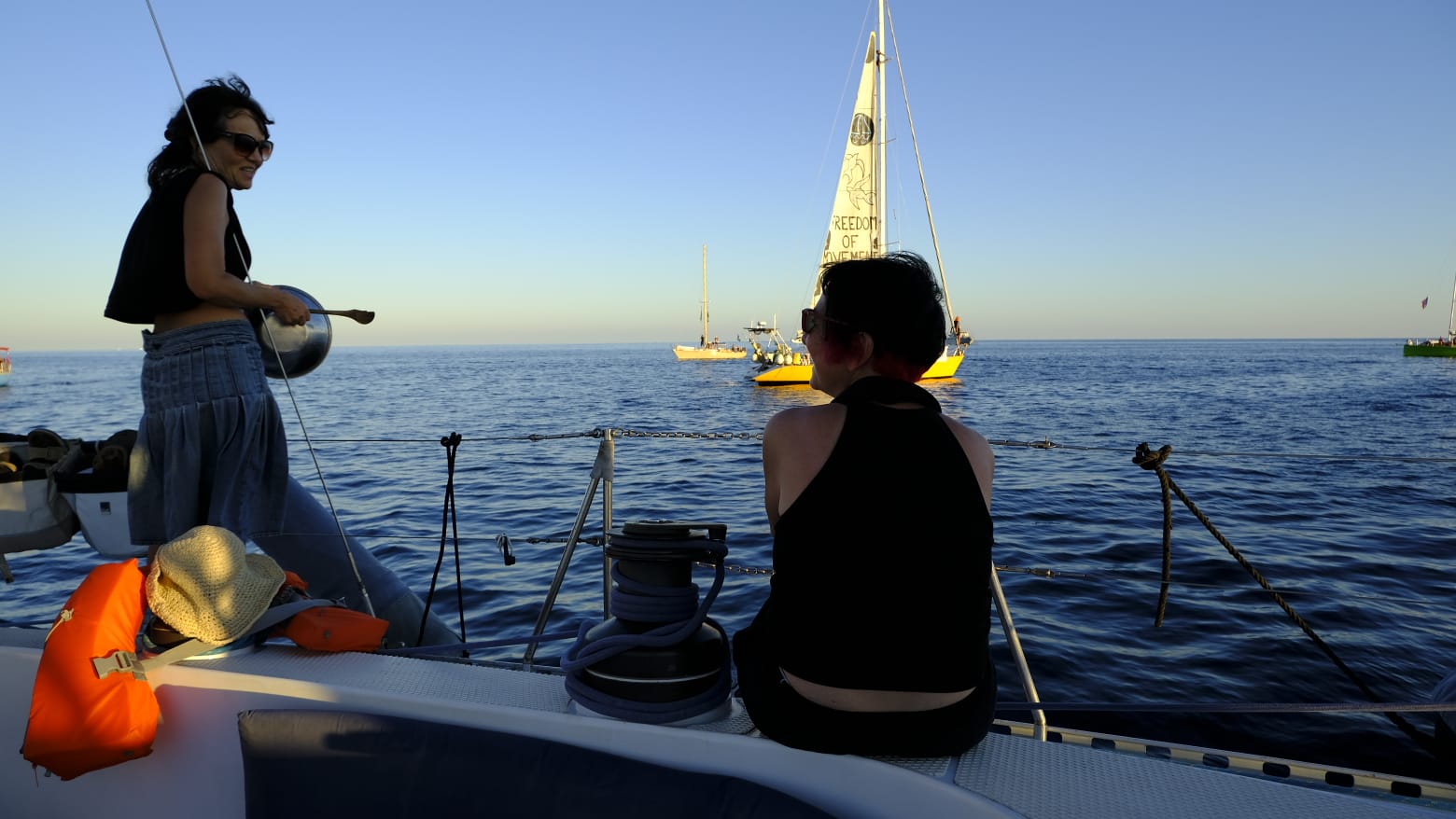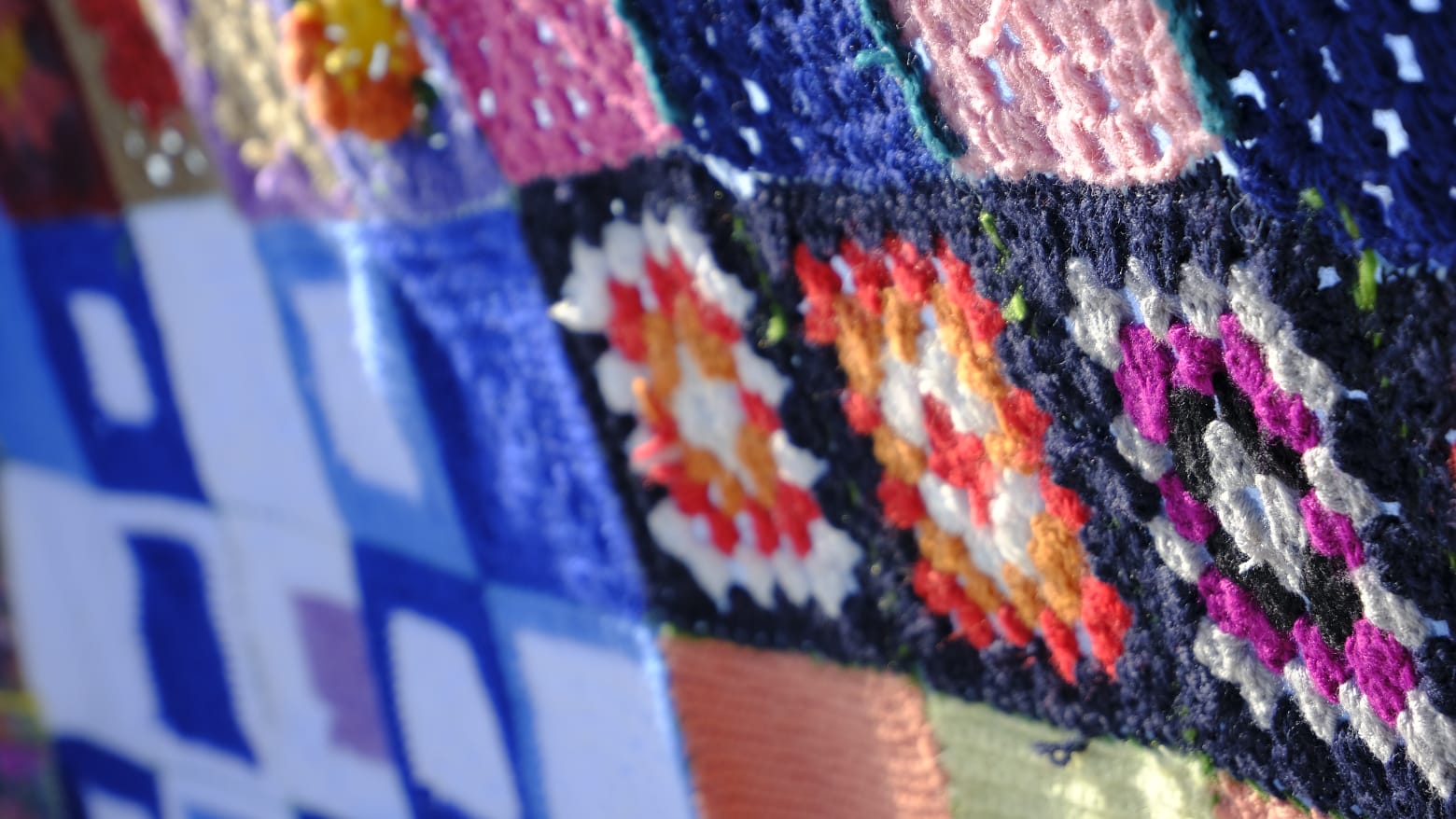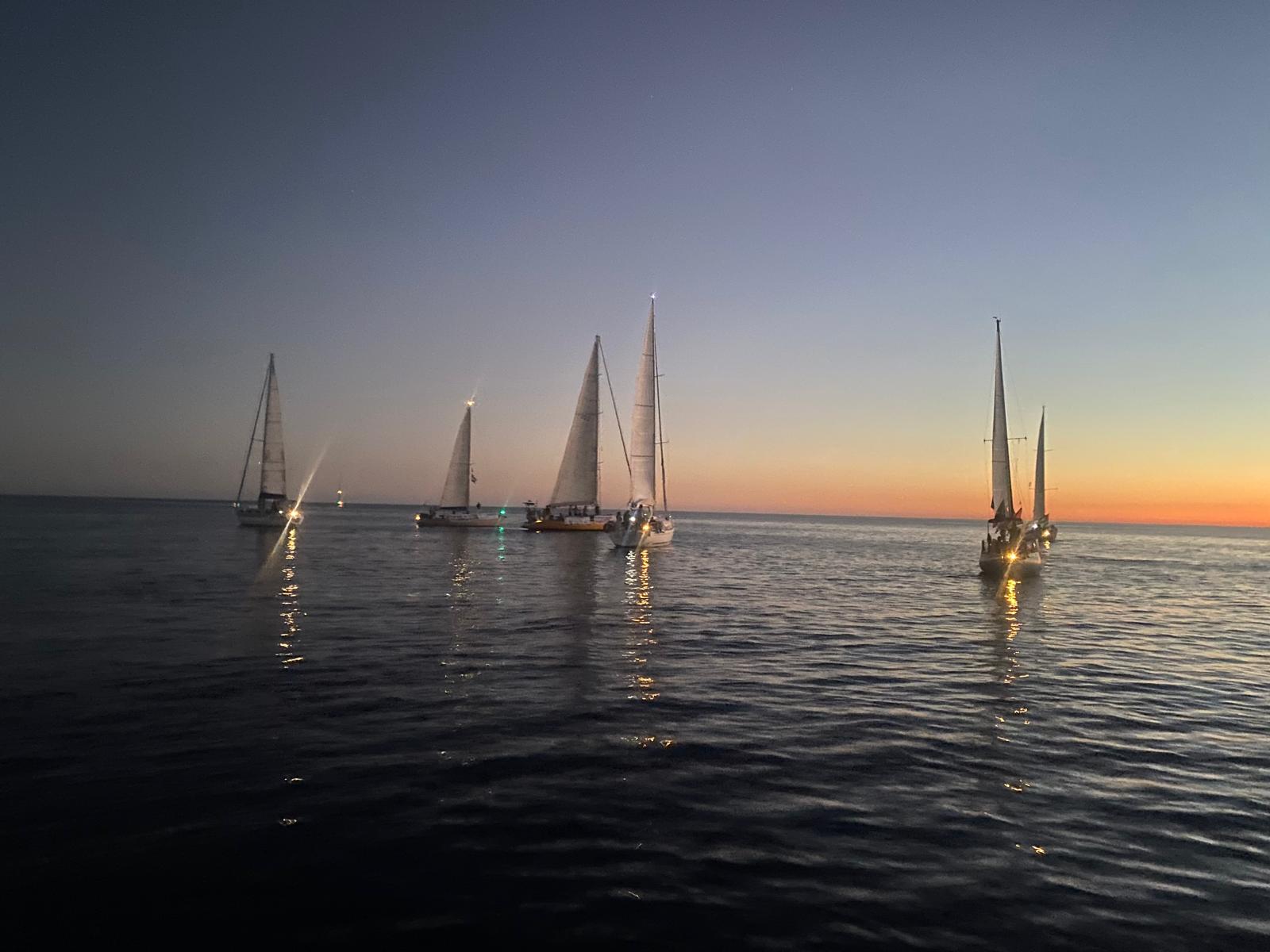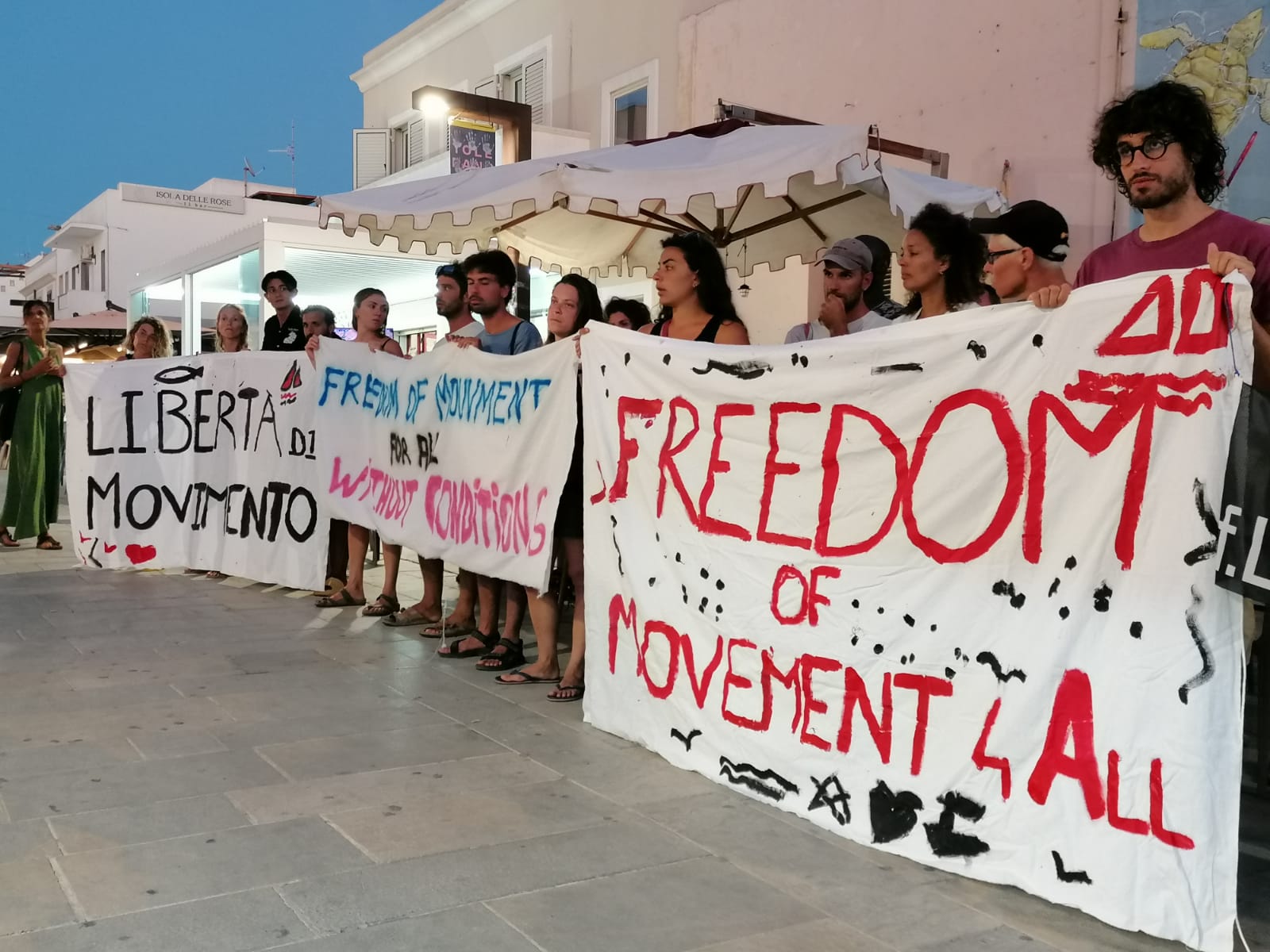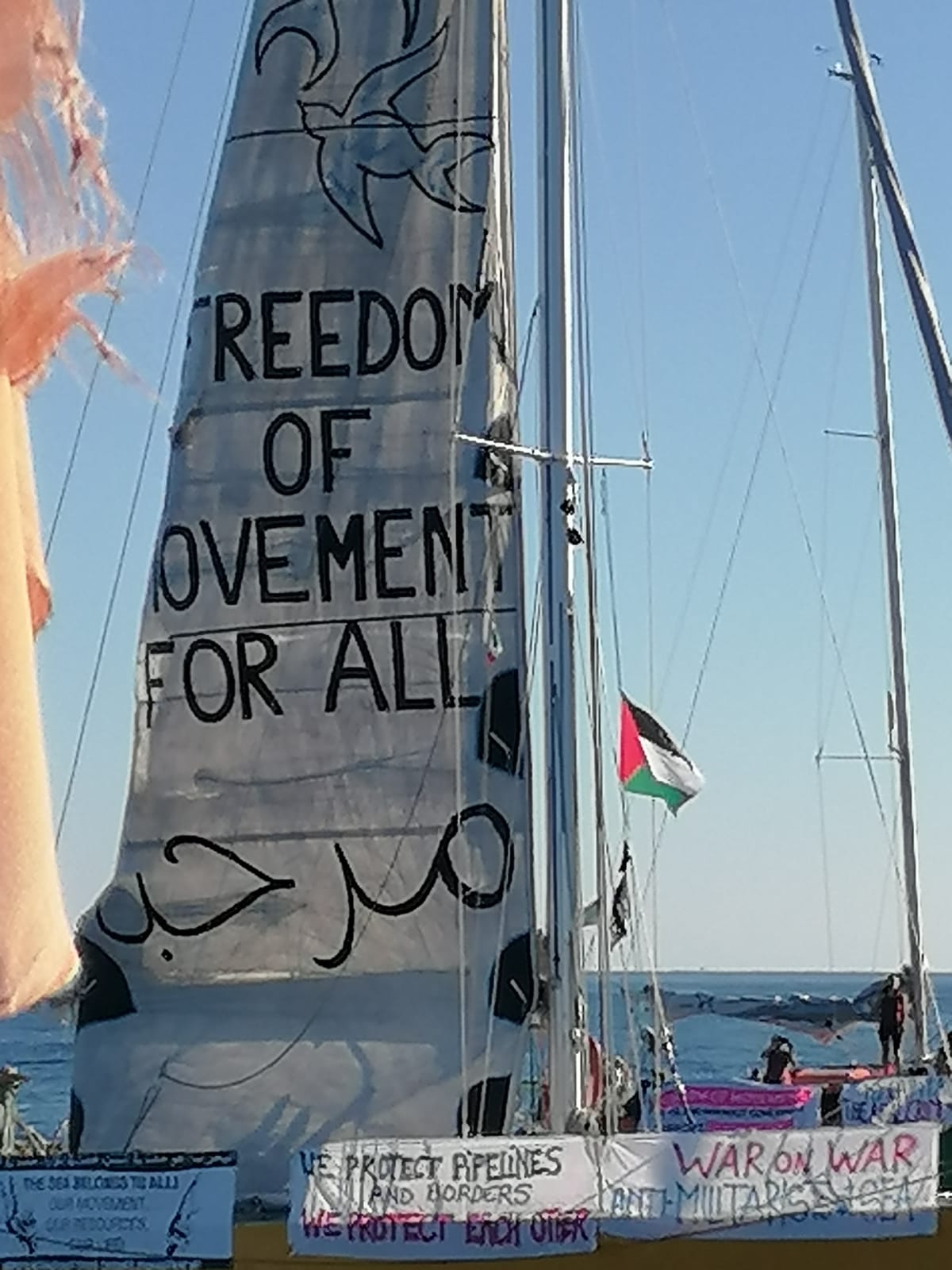The University of Parma navigating the Mediterranean: participatory research and civic engagement with the f.lotta project
The University of Parma participated in the f.lotta initiative, a research and civil testimony action that saw a fleet of boats cross the Mediterranean to document and denounce human rights violations along migratory routes.
Our University’s participation was part of the activities of the ParTeR research group, which has been developing participatory research methodologies and innovative teaching in the field of human rights protection for years. Through the Socio-Legal Clinic, the project involved students and researchers in an educational experience that transcended the traditional boundaries of the university classroom. The initiative saw important collaboration with the University’s Center for Arts and Performing Arts Activities and Professions - CAPAS and RadiorEvolution, the web radio of the students of the University of Parma, with which new forms of narration were created to enhance this experience and actively involve the student body.
An open-sea research laboratory
The Mediterranean thus became an open-air research laboratory, where ethnography became navigation and theory met the reality of people on the move. The Tanimar ship, part of the f.lotta fleet, hosted a multidisciplinary crew composed of researchers, activists, filmmakers and witnesses, united by the will to document what is elsewhere hidden or reduced to media spectacle.
The initiative focused in particular on denouncing the phenomenon of “State Trafficking” between Tunisia and Libya, as documented by the RR[x] report presented to the European Parliament: European border externalization policies have generated the paradoxical effect of transforming state apparatuses into human traffickers.
With participation in f.lotta, the ParTeR research group has confirmed its commitment to forming a critical consciousness and producing socially relevant knowledge, to create bridges between research and civil society. In the Mediterranean that some would like to close with naval blockades and bilateral agreements, we have chosen to navigate to keep open spaces of knowledge, testimony and justice.
For a report on the experience read on Melting Pot